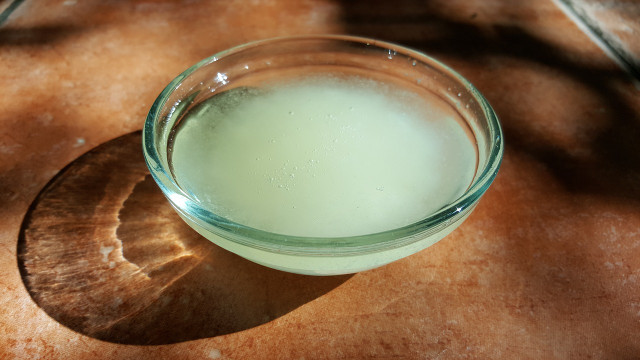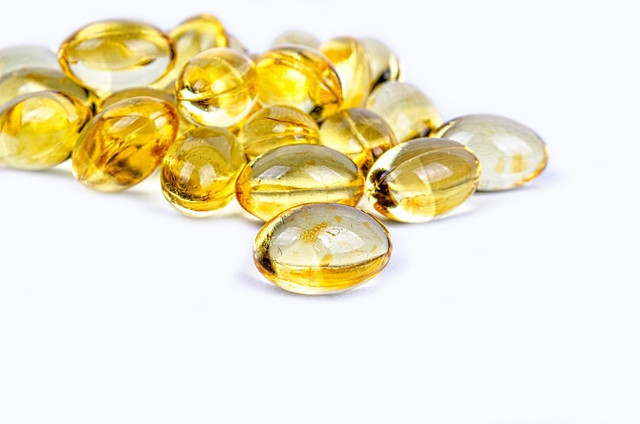What is squalene, and how does it differ from squalane? Here's what you need to know about the controversy surrounding how they're taken from deep-sea sharks.
The controversy surrounding squalene arises from the fact that many companies use squalene taken from sharks. The word squalene is derived from the Latin word squalus, meaning “shark.” So what is squalene, exactly?
This organic compound is primarily sourced from shark liver oil – so, it’s found in the liver oils of deep-sea sharks.
However, the use of deep-sea sharks as a primary source of squalene is controversial, as it puts their population at risk — and many of these sharks are already at risk of extinction due to overfishing.
What Is Squalene?

(Foto: CC0 / Pixabay / SchaOn)
Squalene is a substance found in the human body, as well as in animals and plants. It is made in the liver and circulates throughout the bloodstream to reach various areas of the body, with the highest amount found in skin.
Squalene is used to make certain hormones that control the skin’s aging process. As we age, squalene production declines and our skin ages faster. Squalene has been used for centuries to make beauty products that make up for this loss.
You can find it in moisturizers, sunscreen, lip balm and lipstick, deodorants and foundations. It is also used in many medications. For example, Fluad, a vaccine for the prevention of seasonal influenza in adults, includes MF59 — an oil-in-water emulsion of squalene oil.
What Is Squalane, and How Does It DIffer From Squalene?



(Foto: CC0 / Pixabay / PublicDomainPictures)
What is squalene on a chemical level, and how does it differ from squalane? Squalene is a highly unsaturated oil, which means it has multiple double bonds in its chemical structure. That means squalene is not stable in its original form, and when exposed to oxygen, it can spoil quickly.
Squalane is a saturated version of squalene. It is made by hydrogenating squalene — where double bonds are converted into single bonds. In other words, hydrogenating converts squalene from unsaturated oil to saturated oil (squalane).
This process results in a more stable substance that easily absorbs into the skin and is less prone to oxidation. Moreover, increasing the shelf life of squalane-based products grows the potential profits.
How Big Is Squalane's Impact?



(Foto: CC0 / Pixabay / Fgyongyver)
Though it’s difficult to gauge just how many sharks are killed for squalene and its derivatives, the UN’s Food and Agriculture Organization estimates that it takes between 2500 and 3000 sharks to extract roughly one ton of product. Deep-sea sharks are most in danger for their squalane, as some have as much as 90% squalane in their livers to help them withstand the pressure of the deep ocean waters they live in.
This targeted hunting can lead to a decline in shark populations, which has a ripple effect throughout the ecosystem. Overfishing sharks for squalene also significantly impacts the coastal communities that depend on shark fishing for their income. For more information on overfishing and what you can do about it, read 4 Solutions to Overfishing and What You Can Do.
Although most developed countries no longer manufacture squalene products domestically, research indicates this has not put an end to the trade. Instead, squalene products are now exported from foreign markets, like Taiwan.
Additionally, the demand for shark-based products like squalene can drive illegal, unreported and unregulated (IUU) fishing. This further compounds the negative effect on shark populations, as IUU fishing is not subject to the same regulations and oversight as legal fishing.
For these reasons, the use of shark-based squalene is criticized by conservation groups, and some countries and international organizations have implemented regulations and guidelines to address the issue. Likewise, a number of companies have started to use plant-based alternatives, such as sugarcane-derived squalene, to reduce the impact on shark populations.
Are There Alternatives to Squalene?



(Foto: CC0 / Pixabay / manfredrichter)
Nowadays, a lot of squalene is derived from plants. Many vegan products are available that use squalene derived from plant sources, including olives, sugarcane, rice bran, wheat germ and palm trees.
Recent research proposes the use of amaranth grain, as it is an excellent source of squalene and is readily available in many countries where it grows as a common weed. Some examples of shark-friendly squalene products include:
- The Ordinary face serum set (available on Amazon**): This is a set of plant-derived squalene and other cruelty-free facial moisturizers and formulas.
- BIOSSANCE 100% Squalane Oil (available on Amazon**): This lightweight skin and hair oil is derived from sugarcane. It’s also vegan and cruelty-free.
- Honest Beauty hydrogel cream (available on Amazon**): This is a cruelty-free soothing facial cream. It contains a mixture of vegan squalene and jojoba esters to help minimize, moisturize and soften skin.
You can use these squalane oils and serums to moisturize and hydrate your skin alone or as an additional step in your beauty routine.
Takeaways
It can be difficult to tell if the products we use have squalane. There are lists of companies that use it and ones that don’t; however, for the most part, it is easier to look specifically for vegan and cruelty-free products if you want to be sure you aren’t supporting shark-derived squalene or squalane.
Read more:
- 6 Homemade Leave-in Conditioners Using Natural Ingredients
- All-Natural Homemade Lotion Recipe That You Need to Try
- 10 Tips To Become a Little More Vegan in Your Everyday Life
Do you like this post?






